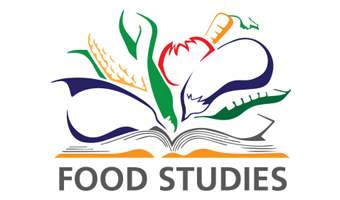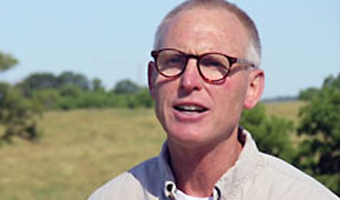On Jan. 29, Warren Taylor, owner of Snowville Creamery in Pomeroy, OH, spoke on Food Sovereignty: Language-Labels-Liberty. Taylor spoke as a part of the Food Studies Food for Thought Speaker Series to a crowd of Ohio University students, faculty, and Athens community members in the Friends of the Library Room, Alden 319.
Taylor emphasized the civic right of Americans to have clear and concise food labeling. He warned the audience of the danger of federal legislature that permits the use of words like “humane,” “sustainable,” and “natural” without transparent and consistent definitions, thus allowing businesses and food producers to manipulate language for their financial benefit.
“Labeling used to be used to inform consumers about what they were about to purchase” Taylor states, but “it has been used to favor pro-industrial agriculture and biotech agriculture agenda for years. Last July, the House of Representatives passed HR 1599 The Safe and Accurate Food Labeling Act reinforcing the concept that industrial agriculture is ‘safe’ and other methods are ‘unsafe.’ This act continued the precedent of the last 20 years in denying mandatory GMO (Genetically Modified Organisms) labeling. This act also states that even if an animal is fed GMO feed, their meat, milk, or eggs can be labeled “non-GMO.” So controversial is this bill that its opponents in the organic and related industries have labeled it the DARK ACT – Deny Americans the Right to Know Act. Warren maintains that such linguistic machinations deny Americans their basic civic and indeed human right to know what they are consuming.
 Taylor calls for governmental standards for the words that can be applied to certain production methods and which cannot. U.S. citizens should be able to trust that the statements that come on the packages of the food that they are buying are giving a clear and accurate representation of the lives of the animals, the methods used to grow the vegetable, or the additives included in whatever product. And smaller, honest farmers should be able to trust that the words describing their products and methods will not be stolen from them in order for other businesses to increase their profit, without changing their methods.
Taylor calls for governmental standards for the words that can be applied to certain production methods and which cannot. U.S. citizens should be able to trust that the statements that come on the packages of the food that they are buying are giving a clear and accurate representation of the lives of the animals, the methods used to grow the vegetable, or the additives included in whatever product. And smaller, honest farmers should be able to trust that the words describing their products and methods will not be stolen from them in order for other businesses to increase their profit, without changing their methods.
“Just inform. Don’t spin. Be honest, be clear,” declared Taylor. Taylor concluded by urging everyone to contact government representatives to demand fair and accurate labeling.
Please join the Food Studies theme with Drs. Theresa Moran and Art Trese on Feb. 25 at 5 p.m. on Food in Cuba: Policy and Practices, in the Friends of the Library Room.
Watch the whole talk on A&S TV.
By Anna Chleboun




















Comments